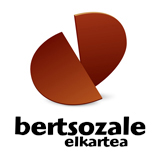Bibliothèque - Voir fiche Pour savoir plus sur cette section
‘Muc Dhearg!’ ors’ ise : women and gaelic storytelling in the Outer Hebrides of Scotland c.1850-c.1980
 Document:
Anglais.
Online
Fond de bibliothèque
Document:
Anglais.
Online
Fond de bibliothèque
- Auteur(s)
- Parker, Isla
- Titre
- ‘Muc Dhearg!’ ors’ ise : women and gaelic storytelling in the Outer Hebrides of Scotland c.1850-c.1980 / Isla Parker.
- Publication
- 2022
- Thèmes
- Eskozia
- Content
-
Testu osoa
- Description physique
- 80 or.
- Typologie
- Document
- Eduki mota
- Master Amaierako Lana
- Notes
- Glasgoweko Unibertsitateko Master Amaierako Lana.
Azalean: Submitted In Partial Fulfilment Of The Requirements For The Degree Of Master Of Research College Of Arts Celtic And Gaelic University Of Glasgow.
Bibliografia: 71-80 or.
This study explores the hitherto under-researched role of women within the Gàidhlig storytelling traditions of the Outer Hebrides of Scotland between c.1850 and c.1980. Drawing upon secondary sources, original audio material, and interviews with former collectors, this study will examine women’s role in and relationship to traditional storytelling events such as the “taigh-cèilidh” and draw attention to the lives and repertoires of eight women storytellers recorded by the School of Scottish Studies (est. 1951) over the time period researched. In so doing, this study demonstrates for the first time the historical importance of women’s participation in Gaelic storytelling practice throughout the Outer Hebrides.
Adopting a feminist approach, this study will provide an in-depth analysis of two tales recited by Gaelic women storytellers in the twentieth-century, Peigidh NicDhòmhnaill (Peggy MacDonald) originally from South Uist and Anna NicIain (Annie Johnston) from Barra. Much of the scholarship to date has either omitted or missed the facts of NicDhòmhnaill’s familial relations. But NicDhòmhnaill was the sister of celebrated tradition bearer Aonghas ‘Beag’ Mac ’IllFhialain (Angus MacLellan). This study will make use of these familial relations by comparing the siblings’ versions of the same tale and thus demonstrate the value of recognising and utilising women’s stories as a source for research. Throughout, this study aims to contribute to a greater awareness and more accurate appraisal of Highland women’s role in the oral literature traditions of nineteenth- and twentieth-century Gaelic storytelling culture.
Adopting a feminist approach, this study will provide an in-depth analysis of two tales recited by Gaelic women storytellers in the twentieth-century, Peigidh NicDhòmhnaill (Peggy MacDonald) originally from South Uist and Anna NicIain (Annie Johnston) from Barra. Much of the scholarship to date has either omitted or missed the facts of NicDhòmhnaill’s familial relations. But NicDhòmhnaill was the sister of celebrated tradition bearer Aonghas ‘Beag’ Mac ’IllFhialain (Angus MacLellan). This study will make use of these familial relations by comparing the siblings’ versions of the same tale and thus demonstrate the value of recognising and utilising women’s stories as a source for research. Throughout, this study aims to contribute to a greater awareness and more accurate appraisal of Highland women’s role in the oral literature traditions of nineteenth- and twentieth-century Gaelic storytelling culture.
ABSTRACT ...2
ACKNOWLEDGEMENTS ...3
INTRODUCTION ...5
CHAPTER 1: Literature Review ...9
CHAPTER 2: Storytelling Context ...22
CHAPTER 3: Storyteller Biographies ...33
CHAPTER 4: Analysis ...49
CONCLUSION ...66
BIBLIOGRAPHY ...70
ACKNOWLEDGEMENTS ...3
INTRODUCTION ...5
CHAPTER 1: Literature Review ...9
CHAPTER 2: Storytelling Context ...22
CHAPTER 3: Storyteller Biographies ...33
CHAPTER 4: Analysis ...49
CONCLUSION ...66
BIBLIOGRAPHY ...70


